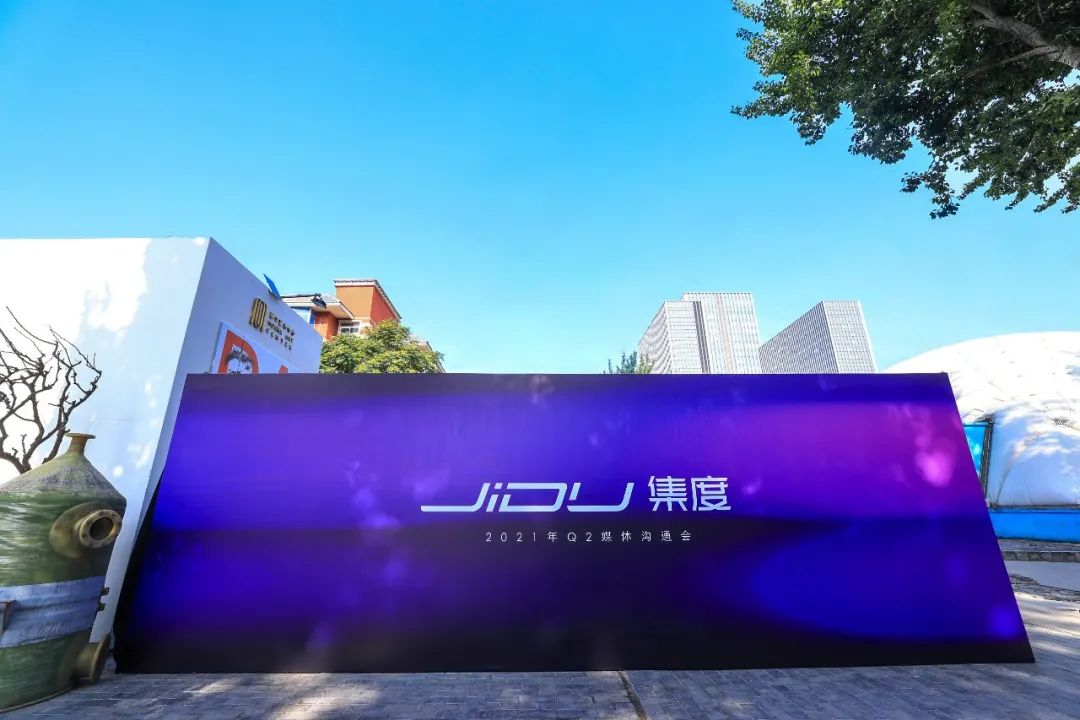Author: Michelin
100 days is a very short period for traditional car companies that usually take years for research and development. However, for a new car brand, 100 days is enough for them to determine their goals and product positioning.
On Children’s Day, the joint project between Baidu and Geely – JiDU Automotive, which was founded just three months ago, held its first media communication meeting. Let’s take a look at the new developments of JiDU in these 100 days.
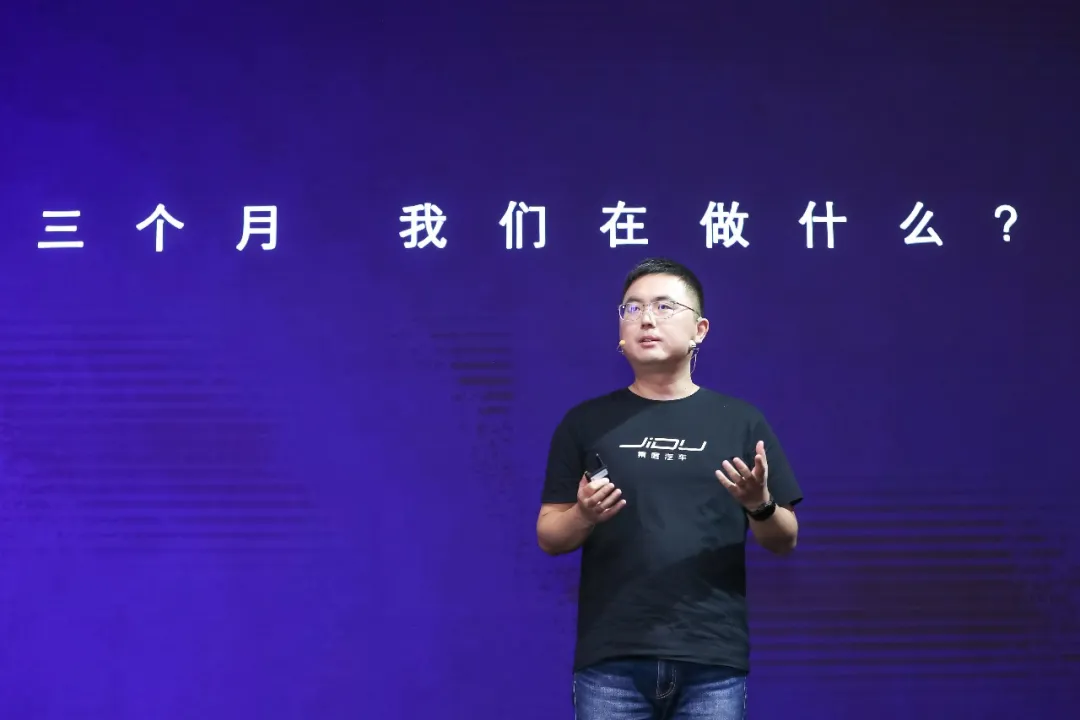
Repairing Aircraft While Flying
When JiDU was established in the beginning of March, there were only a few employees; three months later today, there are already more than 100 employees, and the team is still expanding. JiDU Automotive CEO Xia Yiping described the past hundred days of JiDU as “repairing aircraft while flying”: building core teams while exploring the direction of the product.
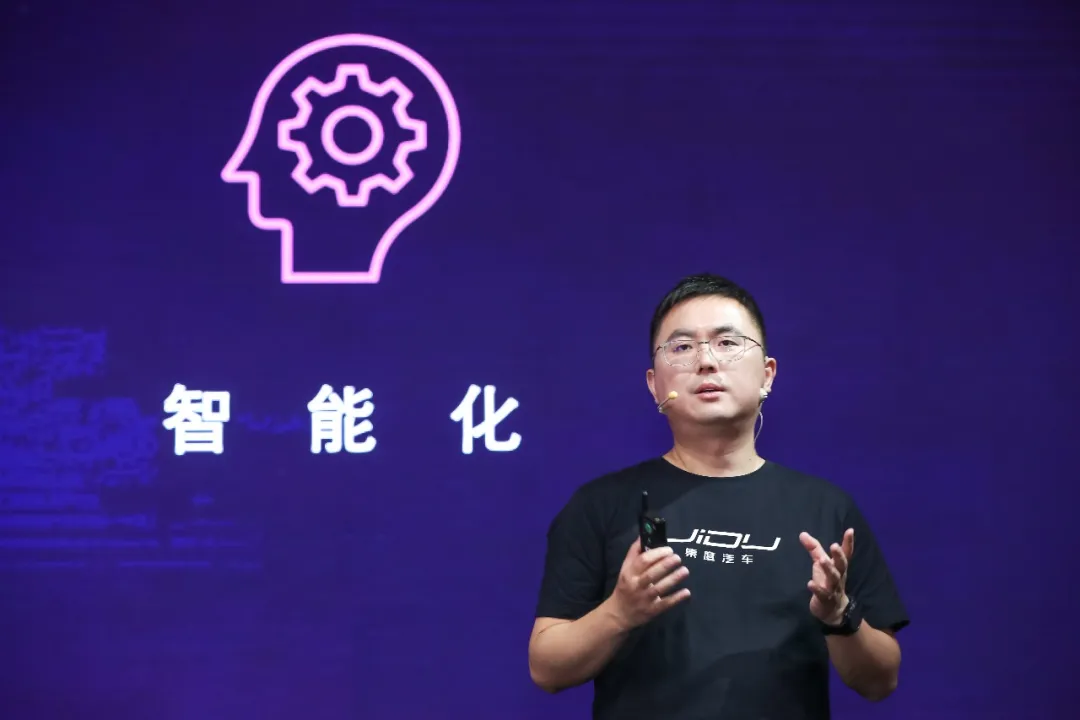
The competition in smart cars revolves around electrification, intelligence, and unmanned technology. In the past few years, with the popularization of electric cars promoted by Tesla and other new car manufacturers, many technical aspects of electrification have become standardized and homogeneous. In the next 3-5 years, the competition in the automotive industry will shift to intelligence, and intelligence has become the key to differentiating various carmakers. After the competition in intelligence, the competition in the automotive industry will enter the unmanned stage. It can be said that intelligence is the present continuous tense of the automotive industry competition.
Therefore, JiDU, which joined the car manufacturing industry at this stage, has targeted the core competition in intelligence.
“Intelligence is not just superficial; it is also fundamental technology, reconstructed from bottom to top,” Xia Yiping said.
JiDU defines this bottom-to-top reconstruction as an “end-to-end ecosystem,” which is also the core of the competition in intelligence.

In terms of autonomous driving, JiDU collaborates with Baidu Apollo to develop the capabilities of intelligent cabins, intelligent driving, intelligent cloud, and intelligent maps, relying on Baidu Apollo’s supercomputing platform, algorithms, high-precision maps, and intelligent driving cloud from the R&D stage.
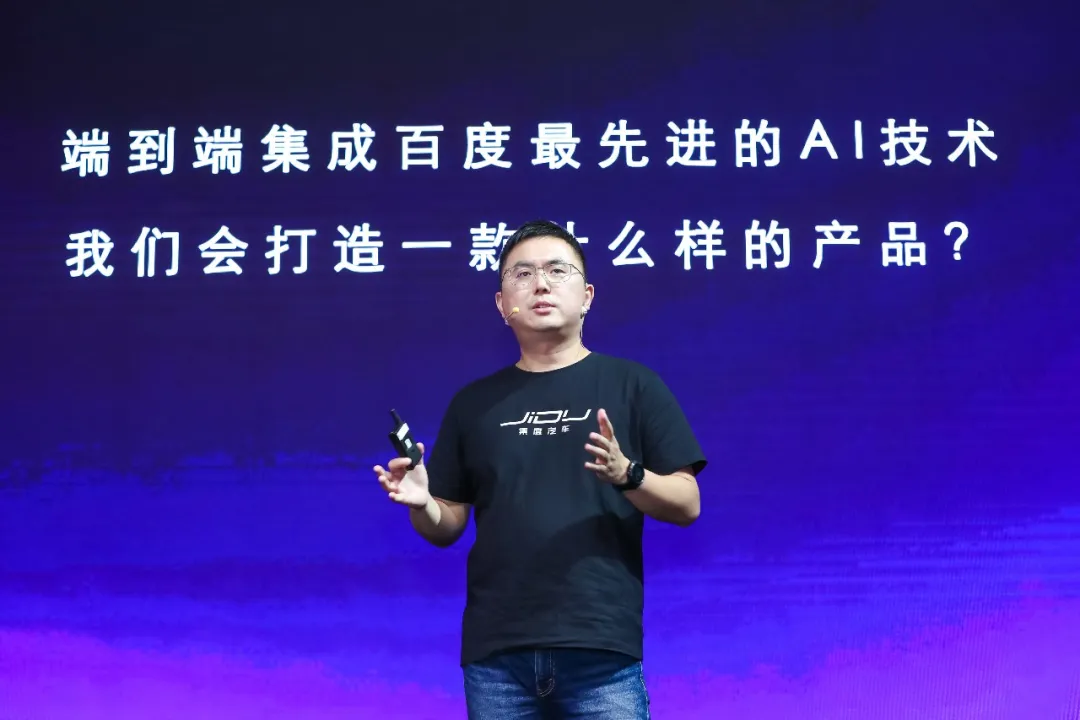
In terms of end-to-end intelligent cabins, it is also developed on the basis of Geely SEA’s open and expansive architecture, large bandwidth, flexible expansion, and capabilities in hardware development, voice, application ecology, and human-machine co-driving maps.To build an end-to-end ecosystem, Jidu has teamed up with Baidu and Geely to develop JET, an intelligent architecture for L4 autonomous driving that seamlessly integrates Apollo and SEA architectures through the SOA platform to achieve software and hardware decoupling.
When a car has an AI brain, it is a robot
What will the future car look like? Xia Yiping gave three concepts for the future car: ROBOTIC, EMOTIONAL, and FUTURISTIC.
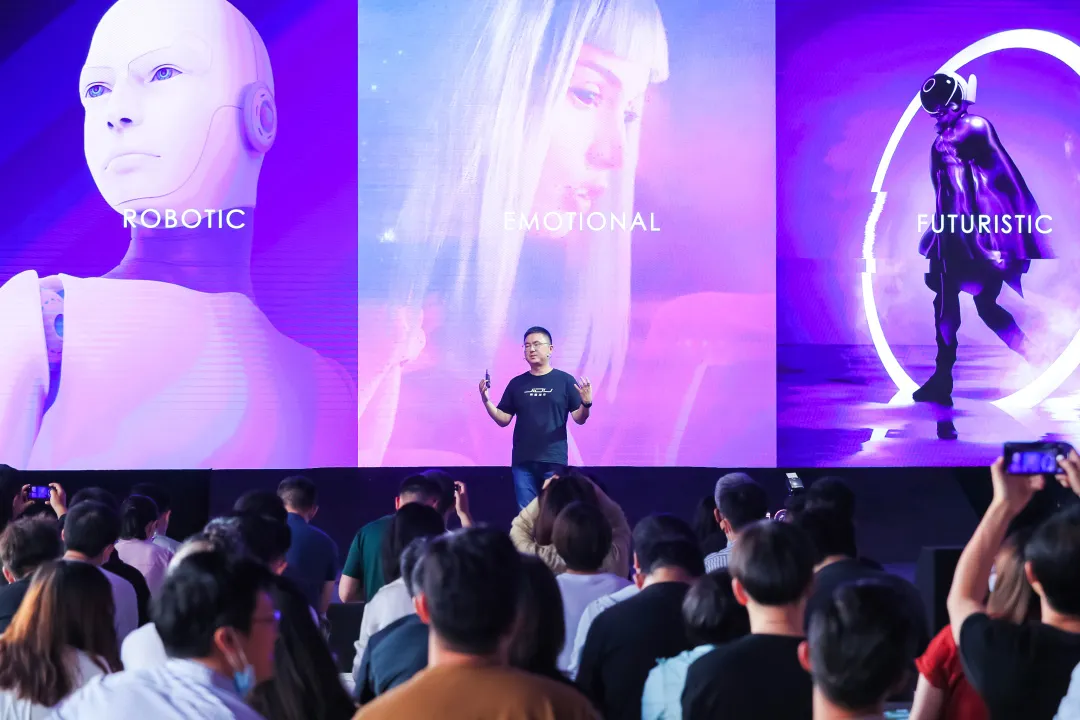
Intelligence and mechanization at the product level; emotional and human interaction at the interaction level; and a futuristic and technological design are the three criteria that Jidu Automotive follows in its design. Based on these three concepts, Jidu has revealed some information about the first car model:
The target user group is mainly young people, with special consideration given to female users, rather than creating a “straight man car”;
High technology attribute, targeting users with a preference for technology products;
Positioned as mid-to-high-end, focused on differentiated competition. Jidu Automotive will not produce low-end cars priced below CNY 200,000 due to the high cost of AI technology and autonomous driving software and hardware.

Based on these positions, Jidu Automotive has completed the selection of interior and exterior designs for its first model, and the next step will be to carry out clay modeling and modeling, with a brand launch event scheduled for October this year where more design concepts and details will be officially released.
What makes Jidu Automotive different?
As a new player entering the car making arena in a heated competition, how Jidu Automotive will create differentiation is the focus of attention. Especially with Baidu’s Apollo platform open to other carmakers, how will Baidu’s “favorite child” play out its unique features through Apollo?
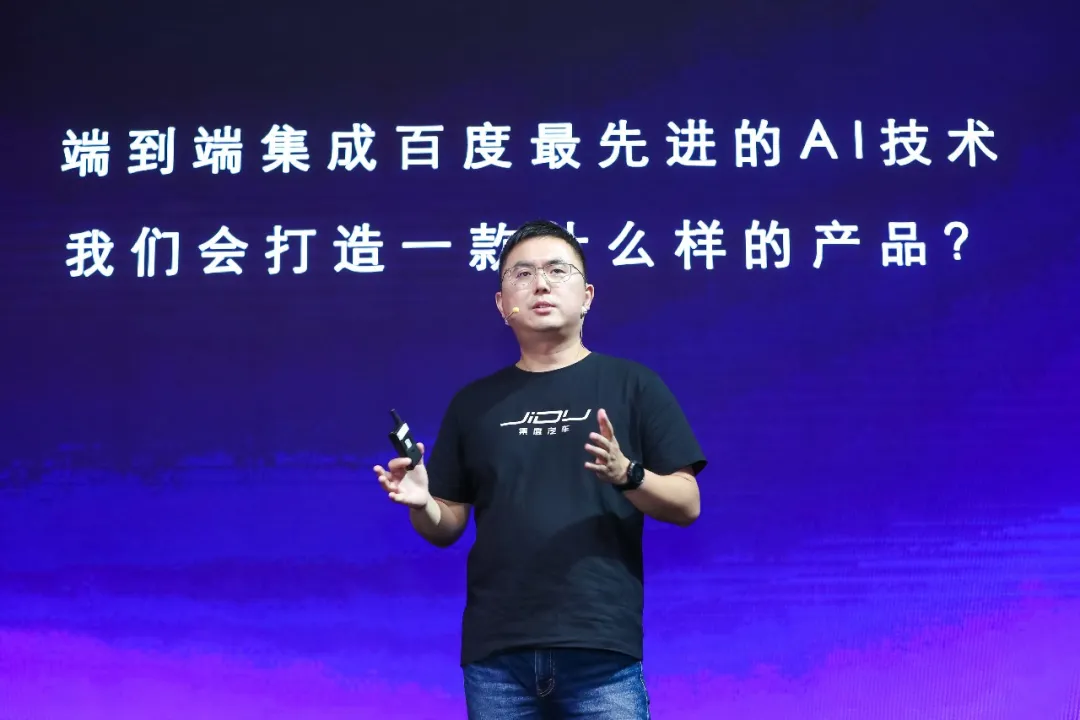
In response to this, Xia Yiping gave a smartphone analogy: currently most smartphones on the market use the Android system, and Google has also made Pixel phones, but the user experience and interaction interface of each phone is different.
Cars are much more complex than smartphones, and even if the underlying technology capabilities are similar, intelligent cars differ greatly from each other due to each carmaker’s market positioning and user experience scenarios.Using the example of autonomous driving technology that Jidu Auto is focused on, currently in terms of L2 and L2+ autonomous driving, various car companies are relatively similar, and the competition is concentrated on the hardware level, such as who uses higher configuration LiDAR and more cameras. In the higher level of autonomous driving in the future, L4 level autonomous driving will be provided to users in a new service mode, and the difference in user experience will be significant. Baidu’s research and technology in the field of autonomous driving in the past seven to eight years is precisely the core competitiveness of Jidu Auto.
Jidu Auto can be said to be “tailor-made” for Baidu Apollo’s AI capabilities from the perspective of the entire vehicle’s electronic and electrical architecture and software. This can be seen from Baidu’s attitude towards making cars. Xia Yiping revealed that Li Yanhong is also very concerned about cars, and he has invested a lot in this matter. Sometimes he even participates in specific details of the car experience.
Jidu Auto’s polishing of user experience is also reflected in the current team composition. Jidu’s team currently includes colleagues from traditional car companies and those who have already merged into new forces, as well as from the internet and consumer electronics fields.
Of course, in addition to this information, Jidu Auto has also given a preview of its future development plan. Xia Yiping stated that Jidu Auto may start external financing in the second half of this year.
Finally, from its establishment in early March to today’s media communication meeting, Jidu Auto has given a relatively substantial answer within less than three months. The positioning of future products, technology architecture, even the design of the first car, and the speed of investment in car manufacturing are all considered fast. This also makes us have more expectations for Jidu Auto’s unknown aspects.
Backed by Baidu, which is famous for AI, Jidu Auto has called for “applying cutting-edge AI technology to cars.” What different functions and experiences will these AI technologies bring to me? After all, for a car that we will see in 2 or 3 years, our expectations for AI are not as simple as an AI voice assistant.
Will Baidu’s investment in the intelligent infrastructure field of smart transportation bring some different applications to Jidu Auto’s V2X technology?
Jidu’s first concept car will be unveiled at the Beijing Auto Show next year. The concept car will be about 90% identical to the production car, and the first car is planned to be available for pre-order next year. By then, our curiosity about Jidu Auto may be gradually uncovered.
This article is a translation by ChatGPT of a Chinese report from 42HOW. If you have any questions about it, please email bd@42how.com.
